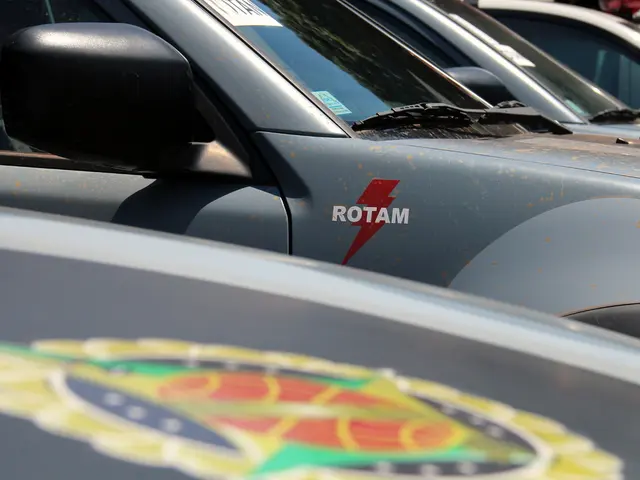Federal Motor Vehicle Agency Needs Significant Redirection, Says VZBV Head
Klaus Müller, Germany's Leading Consumer Advocate, Urges Changes at the Federal Motor Transport Authority
Breaking news from Berlin (dts Nachrichtenagentur): Klaus Müller, the top consumer advocate in Germany, deplores the lack of consumer protection at the Federal Motor Transport Authority (KBA) following the Volkswagen emissions scandal. According to Müller, who spoke with the "Handelsblatt," the US Environmental Protection Agency (EPA) exposed the manipulations in exhaust emissions five years ago - not Germany's KBA. This alarming revelation underscores the need for enforcement in market surveillance in Germany.
"While we've made significant strides in the past five years - enhancing market surveillance, beefing up testing facilities, and creating an advisory board at the Federal Motor Transport Authority – there's still a significant gap in expanding the supervisory objectives," Müller said. He warns that this gap could undermine the long-term protection of consumers who continue to rely on the automotive industry for their daily needs.
Müller paints a mixed picture of the diesel scandal, emphasizing the damage inflicted on millions of consumers and the deterioration of trust in the German automotive industry and the "Made in Germany" brand. "Volkswagen's deceit not only wrecked consumer confidence, but also severely shattered the trust in the German automotive industry," Müller noted. He added that the company's reluctance to adequately compensate European victims was particularly distressing.
Volkswagen moved swiftly to settle with US customers, seeking to avoid astronomical monetary penalties and a barrage of lawsuits. In contrast, European negotiations took significantly longer. This protracted process, Müller argues, has undermined consumer trust in the industry and necessitates a more concerted effort to rebuild. "The automotive world needs to rebuild trust among customers to face the challenges of the future," Müller declared.
The transition to eco-friendly mobility solutions is crucial in combating the climate crisis. However, this transition can only succeed if consumers trust the new technologies powering the vehicles of tomorrow. Following the Volkswagen emissions scandal, Müller advocates for a renewed commitment to transparency and adherence to stated emissions, fuel consumption, and data usage. "People deserve reliable vehicles that comply with the emissions standards, fuel consumption levels, and data usage claims," Müller emphasized.
Global scrutiny of the scandal has led to a reevaluation of regulatory practices, with a renewed emphasis on improved consumer protection and emissions compliance. Key changes might include beefed-up regulatory oversight, enhanced transparency, and a focus on holding manufacturers accountable for any regulatory violations.
For specific details on changes at the KBA, additional research or direct communication with the KBA will be necessary. Yet, the Volkswagen emissions scandal serves as a stark reminder of the need for ongoing vigilance and the protection of consumers' interests within the automotive industry.
Economic and social policy changes at the Federal Motor Transport Authority (KBA) are necessary to enhance consumer protection, particularly in relation to the automotive industry. This includes establishing more stringent regulations in finance, industry, and transportation to ensure transparency, adherence to emissions standards, and accountability for any regulatory violations. The long-term success of eco-friendly mobility solutions hinges on rebuilding consumer trust, which in turn necessitates renewed commitments to transparency and reliable vehicle performance.








